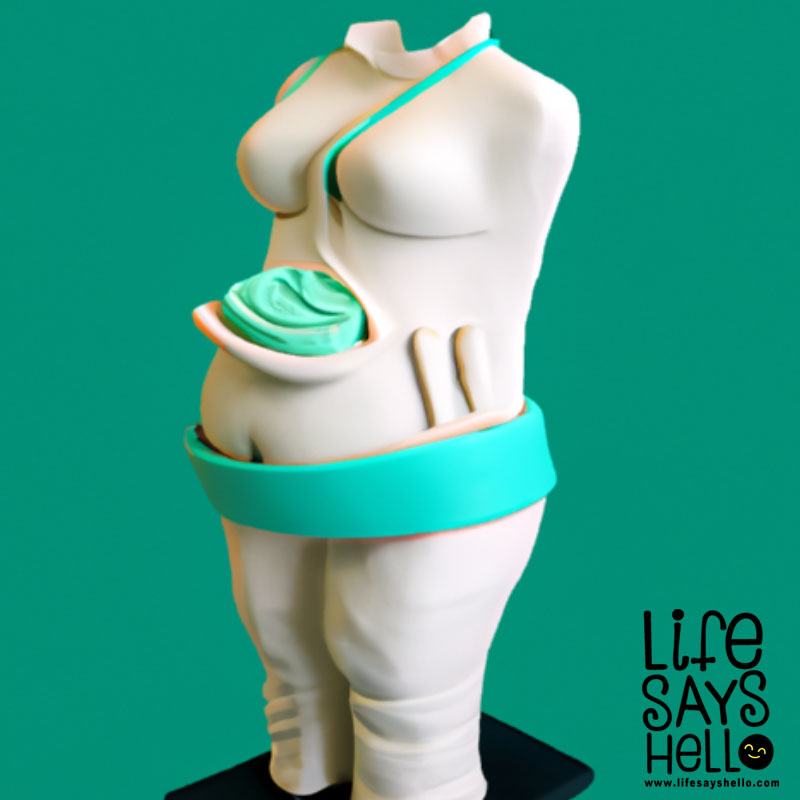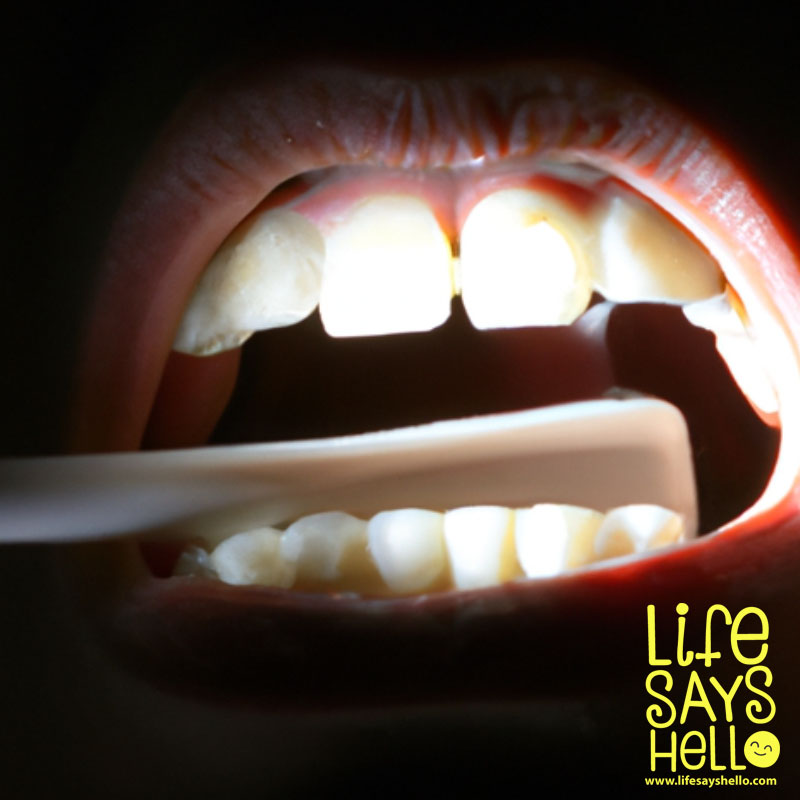Why Are My Lymph Nodes Swollen? 9 Common Causes and Natural Remedies

Feeling small lumps under your skin around your neck, armpits, or groin? Swollen lymph nodes are often the body's way of telling you something's wrong. Learn what causes them and how to find relief naturally at home.
Your lymphatic system is a network of tissues and organs that help rid your body of toxins and waste. Lymph nodes are small, bean-shaped glands throughout your body that act as filters for lymph fluid.
When you get an infection or illness, your lymph nodes may swell as they work to trap bacteria, viruses, and other foreign invaders. In most cases, the swelling goes down once your body recovers.
But sometimes lymph nodes stay swollen long after you feel better. Or they could enlarge without any other symptoms. This may be a sign of something more serious.
Keep reading to learn:
- The most common causes of swollen lymph nodes
- Where to check for enlarged lymph nodes
- When you should see a doctor
- Soothing natural remedies to try at home
- Foods that help and worsen lymph node swelling
What Causes Swollen Lymph Nodes?
Your lymph nodes tend to get inflamed and swollen as they fight off infection. In most cases, the swelling goes down in a week or two.
Here are some of the most common causes of temporarily enlarged lymph nodes:
1. Upper Respiratory Infections
Colds, the flu, sinus infections, and other upper respiratory tract infections are a frequent cause of swollen lymph glands in the neck region.
Your body is working hard to clear the infection, so your lymph nodes enlarge as they fill with white blood cells and other immune cells.
Swollen nodes from colds and flu should go away within 10-14 days. If they persist longer, see your doctor to rule out a more serious infection.
2. Other Infections
Bacterial, viral, fungal, and parasitic infections anywhere in your body can cause swollen lymph nodes as your immune system activates to fight it off.
Common examples include:
- Abscessed or impacted tooth
- Ear infections
- Tonsillitis
- Skin infections
- Sexually transmitted infections (STIs)
- Tuberculosis
Make sure you take your full course of any prescribed antibiotics to clear the infection entirely.
3. Immune Disorders
Autoimmune diseases like lupus and rheumatoid arthritis cause the immune system to mistakenly attack healthy tissues and organs.
This can make lymph nodes swollen and tender as immune activity ramps up throughout the body.
4. Cancers
Cancers that affect lymph nodes or white blood cells often cause lymph nodes to enlarge.
Swollen lymph nodes are a common sign of:
- Hodgkin lymphoma
- Non-Hodgkin lymphoma
- Leukemia
The nodes feel rubbery or hard. If the swelling persists longer than 2-4 weeks, see an oncologist right away for testing. Catching cancer early greatly improves survival rates.
5. Medications
Certain medications can sometimes cause swollen lymph nodes as a side effect. These include antiseizure drugs like phenytoin (Dilantin) or medicines that suppress the immune system such as methotrexate.
6. Injuries and Surgery
Physical trauma from an injury or surgery can damage nearby lymph nodes and vessels, causing swelling and fluid buildup.
Massaging the area can help drain the fluid so the inflammation resolves. But if it persists, see your doctor to rule out any complications.
7. Lipomas
Lipomas are benign fatty tumors that form lumps under the skin, often on the back, shoulders, and neck. They grow gradually over months and years.
Lipomas feel soft, smooth, and doughy. They wiggle easily with slight pressure. While harmless, surgical removal may be done for cosmetic reasons or if they compress nerves and tissues.
Where Are Swollen Lymph Nodes Located?
You have hundreds of lymph nodes throughout your body, but you'll usually notice swelling in these main areas:
Neck - Swollen lymph nodes in the neck are a classic sign of upper respiratory infections. You may feel tender, enlarged glands under the jaw and chin and sometimes around the ears.
Armpits - Your underarm lymph nodes drain your arms and upper body. Swelling here often signals a local skin infection of the hand or arm. But it can also indicate a wider infection or immune disorder.
Groin - You have multiple lymph nodes in your groin area that drain your legs, genitals, and lower abdomen. Swollen groin lymph nodes are a common sign of STIs. But skin infections like athlete's foot can also cause swelling.
Other areas - You may also notice swollen nodes above your collarbone, behind your ears, or in other areas, depending on the infection source. Any enlarged nodes that don't go away with rest and home treatment should be evaluated.
When to See a Doctor About Swollen Lymph Nodes
In most cases, swollen lymph glands will shrink back to normal size within 2-4 weeks as your immune system clears the infection.
But see your doctor if you notice any of the following:
- Nodes are enlarging for no apparent reason (no recent illness or infection)
- Significant swelling in one area, especially if the nodes feel very hard or immobile
- Swelling that persists longer than 4 weeks
- Swelling accompanied by severe pain
- Swelling accompanied by fever, chills, and fatigue
- Swollen nodes that continue to enlarge over time
- Trouble breathing or swallowing due to swollen lymph nodes
- Swollen nodes combined with unexplained weight loss
Your doctor will examine your lymph nodes and ask about your symptoms. They may run tests like:
Blood tests - A complete blood count can detect infections or leukemia. Other tests check for autoimmune disorders.
Imaging - Ultrasound, CT scan, or MRI to look at internal lymph nodes and rule out cancers or other diseases.
Biopsy - Removing a lymph node or part of it for examination under a microscope. This helps diagnose cancers like lymphoma.
Don't panic if your doctor suggests tests - they just want to figure out the cause. Many times, the swelling will turn out to be from a minor infection that resolves.
But it's always better to check and monitor closely when lymph nodes stay enlarged. Prompt treatment of serious illnesses like cancer greatly improves outcomes.
9 Natural Remedies for Swollen Lymph Nodes
While waiting for your nodes to shrink, these natural remedies can help soothe swelling and discomfort:
1. Apply a warm compress - Heat improves circulation and helps reduce swelling. Soak a clean washcloth in hot water, wring it out, and gently place it on the enlarged lymph nodes for 10-15 minutes, 2-3 times a day.
2. Get extra rest - Your body needs rest to heal. Make sure to get 7-9 hours of sleep per night and take it easy during the day.
3. Take OTC medications - Over-the-counter drugs like acetaminophen (Tylenol), ibuprofen (Advil), or naproxen (Aleve) can relieve pain and discomfort.
4. Massage the nodes - Use gentle circular motions to massage the area around the swollen glands. This can help stimulate drainage and reduce swelling.
5. Stay hydrated - Drink plenty of water and herbal tea to flush toxins and support lymphatic flow.
6. Try herbal remedies - Herbs like turmeric, ginger, and oregano have natural anti-inflammatory effects to reduce swelling.
7. Apply essential oils - Soothing oils like lavender, frankincense, and tea tree oil may help reduce swelling when applied topically.
8. Take probiotic supplements - Probiotics support immune and gut health, helping your body fight infections.
9. Get light exercise - Light physical activity boosts circulation and lymphatic drainage. Try walking, gentle yoga, or rebounder exercises.
Be patient during your recovery. It can take 2 weeks or longer for swollen lymph nodes to shrink back to normal. But if they don't improve or keep growing, see your doctor.
What to Eat (and Avoid) for Healthy Lymph Nodes
Your diet can impact how well your lymphatic system functions. Here are some dietary tips:
Eat These Lymph-Cleansing Foods
Fresh fruits and vegetables - They provide antioxidants and polyphenols that reduce inflammation.
Leafy greens - Chlorophyll-rich greens like kale, spinach, and collard greens help detox the lymph system.
High-fiber foods - Fiber supports gut health and immune function.
Probiotic foods - Kimchi, kombucha, yogurt, and kefir replenish healthy gut bacteria.
Omega-3s - Fatty fish and flax help reduce inflammation.
Turmeric - Curcumin has natural anti-inflammatory effects.
Ginger - Gingerol is a potent anti-inflammatory and antioxidant compound.
Garlic - Boosts immune health and detoxification.
Pineapple - Bromelain reduces swelling and helps clear lymph fluid.
Avoid These Inflammatory Foods
Added sugars - Found in sodas, candy, and desserts, added sugar promotes inflammation.
Refined carbs - Found in white bread, pasta, and baked goods. They spike blood sugar.
Processed foods - Packaged snacks, frozen meals, fast food are high in salt, fat, and preservatives.
Fried foods - High-temperature cooking creates inflammatory advanced glycation end products (AGES).
Alcohol - Alcohol overloads the lymphatic system and causes inflammation.
Follow an overall healthy diet, stay hydrated, and get nutrients from anti-inflammatory foods. This supports your lymph nodes as they work hard to filter toxins and germs.
Swollen Lymph Nodes: Key Takeaways
Swollen lymph nodes are a sign your body is fighting an infection or illness.
They are usually caused by common infections like colds, tooth infections, or skin infections.
You may feel enlarged nodes in your neck, underarms, groin or other areas.
Lymph swelling often resolves once the infection clears. But see a doctor if nodes stay enlarged for over 2-4 weeks.
Natural remedies like warm compresses, massage, and rest can help reduce swelling.
Eat a nutrient-rich diet and avoid inflammatory foods for optimal lymph health.
See your doctor promptly if you have persistent and unexplained lymph node swelling. With an accurate diagnosis, most causes can be successfully treated.




Comments